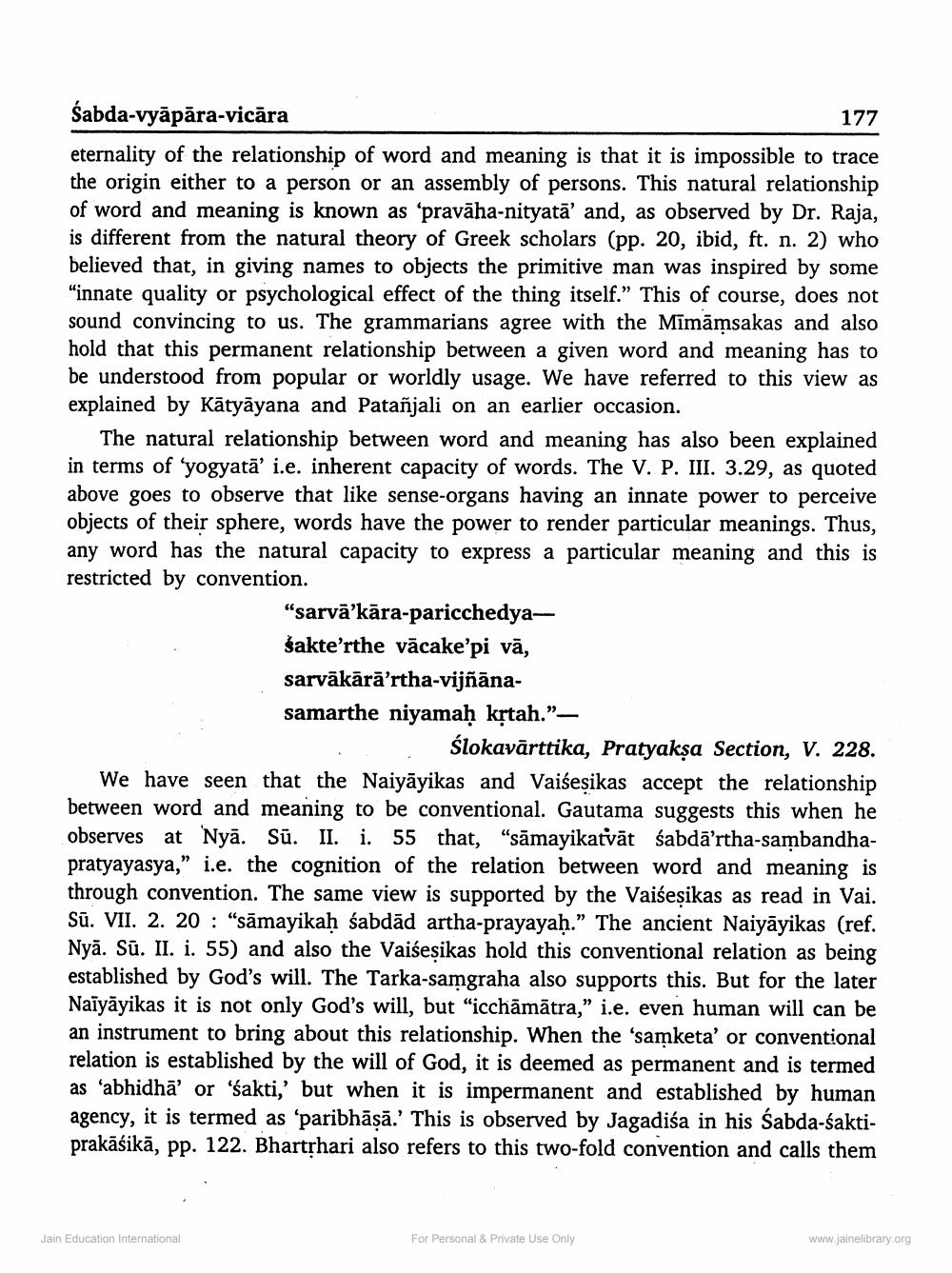________________
Śabda-vyāpāra-vicāra
177 eternality of the relationship of word and meaning is that it is impossible to trace the origin either to a person or an assembly of persons. This natural relationship of word and meaning is known as 'pravāha-nityatā' and, as observed by Dr. Raja, is different from the natural theory of Greek scholars (pp. 20, ibid, ft. n. 2) who believed that, in giving names to objects the primitive man was inspired by some "innate quality or psychological effect of the thing itself.” This of course, does not sound convincing to us. The grammarians agree with the Mīmāmsakas and also hold that this permanent relationship between a given word and meaning has to be understood from popular or worldly usage. We have referred to this view as explained by Kāryāyana and Patañjali on an earlier occasion.
The natural relationship between word and meaning has also been explained in terms of yogyatā' i.e. inherent capacity of words. The V. P. III. 3.29, as quoted above goes to observe that like sense-organs having an innate power to perceive objects of their sphere, words have the power to render particular meanings. Thus, any word has the natural capacity to express a particular meaning and this is restricted by convention.
"sarvā’kāra-paricchedyasakte'rthe vācake'pi vā, sarvākārā’rtha-vijñānasamarthe niyamah krtah."
ślokavārttika, Pratyaksa Section, V. 228. We have seen that the Naiyāyikas and Vaiseșikas accept the relationship between word and meaning to be conventional. Gautama suggests this when he observes at Nyā. Sū. II. i. 55 that, "sāmayikatvāt sabdā’rtha-sambandhapratyayasya," i.e. the cognition of the relation between word and meaning is through convention. The same view is supported by the Vaiseșikas as read in Vai. Sū. VII. 2. 20 : "sāmayikah sabdad artha-prayayah." The ancient Naiyāyikas (ref. Nyā. Sü. II. i. 55) and also the Vaiśesikas hold this conventional relation as being established by God's will. The Tarka-samgraha also supports this. But for the later Naīyāyikas it is not only God's will, but "icchāmātra," i.e. even human will can be an instrument to bring about this relationship. When the 'samketa' or conventional relation is established by the will of God, it is deemed as permanent and is termed as "abhidhā' or 'sakti,' but when it is impermanent and established by human agency, it is termed as 'paribhāsā.' This is observed by Jagadića in his Śabda-sakti prakāśikā, pp. 122. Bhartrhari also refers to this two-fold convention and calls them
Jain Education International
For Personal & Private Use Only
www.jainelibrary.org




